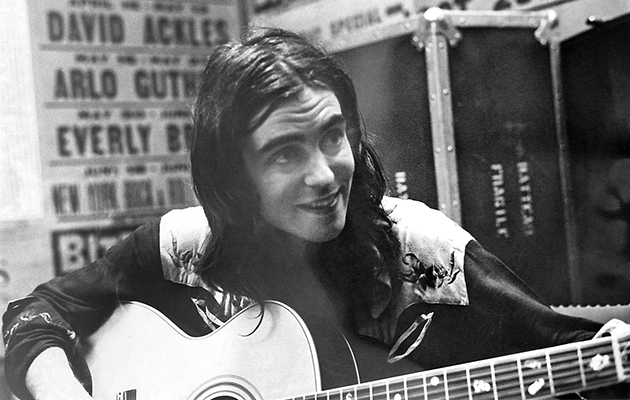He could have been the frontman of Led Zeppelin, Deep Purple and the Spencer Davis Group. Instead, Terry Reid embarked on a remarkable musical adventure of his own. Now, one of British rock’s greatest voices tells his story: of bad luck and bloody-mindedness, of Jagger’s wedding and Keith’s pa...
As 1969 shaped up, there was no reason to suspect Reid had made the wrong professional decision. He was working on a second, stronger album; a self-titled one, that would contain some of his finest early songs like “Rich Kid Blues” (covered by The Raconteurs), “May Fly” and “Speak Now Or Forever Hold Your Peace” (which turned up on Cheap Trick’s debut).
Right at the end of his teens, he was also back in the company of The Rolling Stones, supporting them as they made their way across the States. “One tour with the Stones is enough for anybody’s lifetime. Partying for 30 dates with Keith Richards, there is nothing more to see. If anybody can put a party together, Keith is the expert. We’d fly into a city, do the gig and fly to the next city. So how do you get a party together? Easy if you’re Keith. He gets on the phone two gigs ahead, and he has a party organised in this hotel, and one going on in another, in case one is no good.
“No-one’s gonna say no. There’d be a myriad of characters and miscreants, and he’d book another room for himself in a different hotel, so you never knew where he was. Keith always says, ‘You’ve gotta be a moving target.’ That tour, the only time I could relax, get some peace and quiet, was when we got onstage. It was unbelievable: we never saw daylight.”
In the meantime, though, Mickie Most had released the Terry Reid album without the singer’s approval.
“For a while everything Mickie touched did turn to gold,” says Reid. “But that ground to a halt with me. Mickie and I hadn’t been seeing eye to eye over the second album. His strength had always been knowing what makes pop success, but what I had in mind was something more like Traffic. So, while I was away on tour, he mixed it and shipped it. I went absolutely nuts, it was such a stab in the back. Mickie was very powerful, with good lawyers, and he tried to bury me.”
Terry Reid had just turned 20. At the Sky River Rock Festival in August 1969, he met the extraordinary multi-instrumentalist David Lindley, and invited him to Britain after his band Kaleidoscope broke up. The pair holed up at Reid’s 400-year-old, haunted cottage in Holywell, Cambridgeshire, recruited a fiery rhythm section (bassist Lee Miles and sometime Plastic Ono Band drummer Alan White) and began painstaking work on a new album. The record would be called River, and the relative few who heard it would call it a masterpiece. Most’s lawyers, however, would ensure that it would not be released until 1973.
“Terry almost got derailed by the whole thing with Mickie Most,” confirms Lindley, “those lifetime contracts were a form of musical serfdom. If we hadn’t been able to play live, Terry would have been eaten up by it.”
For the next 18 months, they played regularly round Britain and Europe, and were the opening act at the very first Glastonbury Fayre in 1971. “Terry’s an amazing talent,” continues Lindley, ”but evolving all the time, and that was a terrifying band to be in. We had to think on our feet because Terry would never stay still. We’d go from driving R’n’B into samba, and Terry was very into Al Jarreau and scat phrasing. He’d start singing in Syriac Aramaic. The Glastonbury film captures that wildness. I was allergic to something and looked like a giant raspberry. It was so primitive, they were still building the pyramid stage around us.”
Reid also accepted another offer from the Stones when he was asked to play at Mick and Bianca Jagger’s wedding, in May 1971. “Ian Stewart was always the go-between,” explains Reid, “and he told me Mick wanted me to play at his wedding in St Tropez – the following night. Stew took care of everything, I just had to turn up at the airport early the next morning to board a chartered Comet. There’s 70 people, everyone in sunglasses, everyone trying not to look famous. They were loading crates of champagne onto the plane so I asked Eric Clapton if that was for the wedding. He told me it was for the plane journey and the bus ride at the other end. I don’t remember anything after that, aside from the biggest hangover of all time.”



